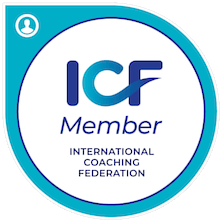Many Christians begin the year with a biblical fast. Some call it a corporate fast if they do it with their community, such as their church. Others may do it solo and in solitude. Whether done individually or collectively, the biblical fast is a fast of well-being that releases your spiritual potential or, in some instances, unblocks it. Jentezen Franklin, the author of the book Fasting, explains that fasting is usually done by “someone with a genuine desire for deeper intimacy with the Lord and knowledge of God’s perfect will.” Whatever your intention for undertaking a biblical fast, it is essential that it is Christ-centered. That it draws you closer to Christ and allows you to access His power fully. In the teachings of Jesus, He says to His disciples they are not “to live by bread alone.”
Other ways of fasting
Hence, in our 21st century, when our lives are consumed with technology, many have chosen creative approaches to fast that have nothing to do with giving up food. Instead, some choose to fast away from social media, their smartphones (good luck!), Netflix, the media in general. Our consumption is not limited to food, as Kirsten Nelson referenced in a devotional.
[Check out our magazine archive to learn more about Christian Fasting.]
I am convinced that food can limit us spiritually. Else why would Christians choose to fast? Or, more importantly, why would Jesus in His teachings instruct it? That area called the gut, or “king stomach,” as Franklin nicknames it, is significant. The gut contains the enteric nervous system. These are neurons embedded in the walls of the gastrointestinal system, which can number about 200 to 600 million neurons. The brain contains about 100 billion neurons. The vagus nerve connects these two areas. In my book, The Ten Guiding Lights to Health and Wholeness, I allude to it as the place of the Holy Spirit.
The purpose of the gut using the biopsychosocial model
Essentially, this gut area has a biological, psychological, social, and spiritual function. Biologically, food nourishes us, and the gut facilitates its digestion of it. Psychologically, this region is powerfully intuitive, connecting us to information not just received from our five senses. Socially, it links us to one another. So what would Thanksgiving and Christmas be without dinner? Foodies, what would life be without the joy of different cuisines? Additionally, many churches offer breakfast or potlucks on Sundays. And spiritually, food is recognized as the Word—Christ Himself, the sacrament, and God’s will.
Fasting, therefore, is a way for Christians to tap into Christ’s power. Recently, the scripture “’ Not by might nor by power, but by my Spirit,’ says the LORD Almighty” (Zechariah 4:6 NIV) has resonated within me. Some things cannot be done within our human strengths, no matter how invincible we think we are. Some plans, goals, dreams, and challenges will call for our spiritual resources. In other words, our entire being—body, mind, and spirit—will be called to engage at a higher level. So I call this holistic spirituality.
What is holistic spirituality?
Holistic spirituality involves our entire being and life to draw us closer to Christ.
Fasting is a practice that embodies the term holistic spirituality. It permeates every area of our lives. Our entire life is redesigned around the practice of fasting. Space opens up and is expanded. The time of fasting creates space for prayer or more prayer. A path is made to explore the inner landscape of one’s soul. For this to take place, we slow life down. As a result, activities like journaling operate as a powerful spiritual tool.
Biblical fast creates time and space.
The church calendar allows Christians worldwide to participate in fasting around Lent. LiveLiving’s friend Cal Samra, author of The Fit Messiah, writes about the health benefits of participating in such practices during Lent, which begins February 22 and ends April 6 of this year. Samra’s sequel, In Pursuit of Health and Longevity, elaborates on the “Great Fast” of the Byzantine Christians, which “prescribed both spiritual and bodily disciplines, including fast days and food-abstinence days aimed at cleaning both the mind and the body. The Byzantine Great Fast of Lent was a Divine Spring Housecleaning for spiritual and health purposes.” He also mentions a quote found by Father Michael Taras Miles, pastor of St. Demetrius Ukrainian Catholic Church in Belfield, North Dakota, who searched the old Byzantine Lenten liturgies: “O, Savior, set me free, that with great joy, I may sing in praise of Your merciful love.”
The quote alludes to our spiritual identity as God’s Beloved. We were created in Love and by Love. We are God’s Beloved. This spiritual truth can set us free—from the compulsion to prove ourselves worthy of love, recognition, and significance. But very often we need time and space to slow down, reflect, examine, and listen to the still, small voice. The biblical fast creates time and space for this shift to happen. Sometimes we become addicted to our thoughts and emotions, which prevent us from hearing and seeing God’s love.
What time is it for you? The seasons of the year can dictate what activities we do. If it is spring, we plant. If it is fall, we begin to store, put away or protect in anticipation of a cold winter. On February 9, 2023, I will be hosting a free webinar called The Three Keys For Redesigning Time to Live a Fulfilled Life Without Burnout and a 7-week course called “The Time ReDesign,” which will begin February 21, 2023, just before Lent. Join me to discover how you can reshape your life by redesigning your time no matter what season you are in.
To learn more about the Christian fast, check out our Fasting issue in the magazine archive.



